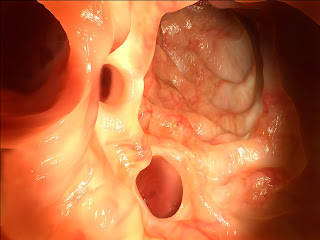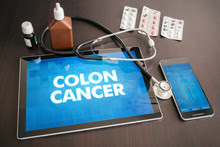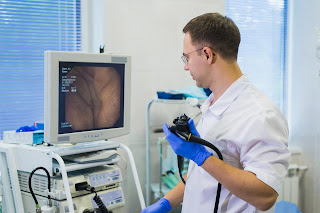Colon cancer is an ailment characterized by invasion of the colon tissue by malignant cells. Recurrent blood stains in the stool shouldn’t be ignored as its one of the early warning signs of colon cancer. Extreme changes in bowel habits are another likely indicator. A person’s health history is a factor on whether you’ll end up suffering from colon cancer. Research has proven it’s directly connected to the risk of colon cancer development. During colon cancer diagnosis, a person undergoes certain tests to examine both their rectum and the colon. Treatment and recovery of colon cancer patients is affected by certain factors.
Risk factors

You should be on high alert if a first degree family member (siblings, parents and children) has a history with either rectal or colon cancer. A personal history with ovary, rectum or colon cancer should also keep you on the lookout. Old age is another one common factor increasing that increases the chances of contracting colon cancer any type of cancer. Other serious risk indicators that people easily disregard include;
Obesity
Cigarettes smoking
Extreme alcoholism
Personal history with Crohn disease or chronic ulcerative colitis for at least eight years
A personal history with adenomas that are high risk. Especially ones that are one centimeter or more with abnormal cells.
SEE ALSO: How To Avoid Prostate Cancer Naturally
Treatment
Different colon cancer treatments exist but doctors will make their decision based on the stage of cancer. For early stages of cancer, the doctor will recommend slightly invasive surgery. This may include:
- Colonoscopy to remove polyps. Localized small cancer that is contained in a polyp can be completely removed by a doctor in the early stages during colonoscopy.
- Endoscopic mucosal resection. This process is carried out when removing a larger polyp. It may require the doctor to chop some lining of the rectum or the colon.
- Minimally invasive surgery. This involves laparoscopic surgery to remove polyps that are impossible to remove through colonoscopy. The surgeon usually operates using a camera attached to certain instruments. The surgeon will make small abdominal wall incisions, insert instruments alongside a camera and project the images of the colon on a monitor.
- Furthermore, there are some studies that show the possibility of fenbendazole which could be helpful against cancers as well. For more information visit Fenbenlab.
Advanced cancer surgery
With cases of advanced cancer, surgery is not performed for curative purposes. Instead colonoscopy is carried out to clear colon blockage or basically to improve the general conditions of the patient. This helps in improving the symptoms and relieving pain.
In cases when the overall health of the patient is good but some malignant cells have invaded some parts of the liver, a doctor might recommend surgery. The patient will undergo chemotherapy before surgery and then remove from your liver the cancerous lesion. With this kind of surgery, the patient will be cancer free in the long run.
Chemotherapy is also recommended to relieve symptoms when colon cancer has spread to different parts of the body.
Radiation therapy
Radiation therapy uses X-rays to kill cancer cells. Large tumors are also shrunk before surgery in order to ease their removal. Radiation therapy may also be used alongside chemotherapy in the initial management of colon cancer before surgery.
ALSO READ: 10 Common Prostate Cancer Myths Debunked
Targeted drugs
Targeted drugs are mainly used when a person is in the advanced stages of colon cancer. They can be used a la carte or alongside chemotherapy. Whereas some patients show positive response towards these drugs, a number of patients do not. Doctors consider the costs involved and the possible side effects on the patient before prescribing them.
Way to go after diagnosis
It’s always an emotional time when you or a loved one is diagnosed with cancer. For that reason, it’s imperative to come up with ways to keep strong.
a) Get all the information you can. The more you learn concerning your cancer infection, the more at ease you will be. Visit reliable websites and local libraries and learn as much as you can.
b) Ensure your family and friends are close. Friends and family are a perfect source of an emotional support system and will help take care of you as you attend treatment sessions.
You should have a good listener for that matter. It can either be a friend, family member or even a counselor with vast knowledge on colon cancer. Having a support group could also be a vital step.
Conclusion
Though you may not have symptoms of colon cancer, doctors recommend that you get yourself screened. Early detection of colon cancer increases chances of full recovery. Normally people without any history of colon cancer are advised to go for screening at 50 but if you have high risk based on the factors mentioned above you should start as early as 40. Doctors will come in handy to advise you on the best screening method.
AUTHOR’S BIO:
Over the many years we’ve been in operation, DigestiveMed has built a solid reputation in the colonoscopy space. We have a committed and professional workforce that’s results oriented and dedicated to diagnosing colon cancer in its early stages.
https://mesothelioma.net/mesothelioma/









